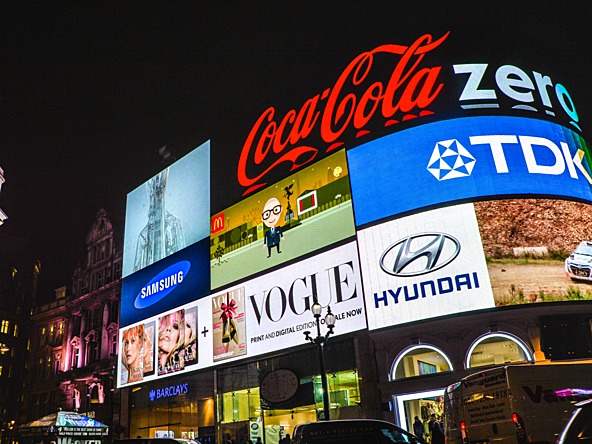Ad spend forecast to fall almost £4bn in 2020

The 15.6% fall projection is a slight improvement on previous estimates by the AA and Warc, which previously forecast a 16.7% drop in ad spend. The improvement in 2020’s ad spend estimates are linked to recent measures by the government to stimulate consumer spending.
The latest expenditure report for the first quarter of the year shows that ad spend is likely to be 16.6% higher in 2021 than in 2020. However, this falls short of the £25.3bn spent in 2019, and pre-Covid estimates for 2020 had ad spend at more than £26bn.
Ad spend increased 2.9% year-on-year in the first quarter, according to the report, in contrast with a 39% fall expected in the second quarter. The industry is not expected to overtake 2019’s ad spend until 2022 at the earliest, according to the study, and current estimates are dependent on a successful vaccine.
Year-on-year growth is also not expected until the second quarter of 2021 due to expected high unemployment levels and the possibility of a second Covid-19 wave this winter.
Online and digital advertising rose in the first quarter of this year, with search and online display advertising increasing by 10.1% and 11.8% respectively. Video on demand also saw a 11.3% increase in investment, and spend on national news websites increased by 14.2%. Cinema and out-of-home advertising were forecast to decrease by 100% and 70.4% respectively in the second quarter, but both areas are expected to recover in 2021.
Stephen Woodford, chief executive of the Advertising Association, said: “This forecast demonstrates the need for government to continue working with the advertising industry to boost confidence in the economy and among consumers.
“This can be achieved through initiatives such as our tax credits scheme for advertising, but also by ensuring we have a regulatory environment that is open and fair, to ensure businesses have the confidence to invest. This means avoiding increased rules and regulations, such as those proposed for high fat, salt and/or sugar food advertising, that will weigh on the much-anticipated recovery we hope to see next year.”
James McDonald, head of data content at Warc, said: “First quarter metrics were softer than had been anticipated going into lockdown, but we believe the second quarter will represent the nadir.
“Our cautious optimism that investment will rebound from April 2021 is rooted, in part, in a belief that a ‘new normal’ will then have been established, borne by a successful vaccination programme. Under these circumstances, we feel the UK’s ad industry can attain a full recovery during 2021 as a whole, though total market value will still be down on 2019’s peak.”

We hope you enjoyed this article.
Research Live is published by MRS.
The Market Research Society (MRS) exists to promote and protect the research sector, showcasing how research delivers impact for businesses and government.
Members of MRS enjoy many benefits including tailoured policy guidance, discounts on training and conferences, and access to member-only content.
For example, there's an archive of winning case studies from over a decade of MRS Awards.
Find out more about the benefits of joining MRS here.














0 Comments